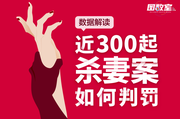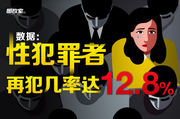In order to maintain the Chinese market, Nvidia may be making more concessions.
On May 24, some media said that Nvidia had lowered the price of H20 series AI chips due to poor demand for H20 series AI chips for the Chinese market.
It was reported that at the beginning of February this year, when Nvidia H20 accepted the reservation in China, the channel pre order price card was between 12000 and 15000 dollars (about 86900 to 108600 yuan), the dealer's actual quotation card once exceeded 110000 yuan, and the eight card server was about 1.4 million yuan. Up to now, due to sluggish demand, the actual price of H20 chip single card channel has reached about 100000 yuan, and the price of each eight card server is about 1.1 million to 1.3 million yuan. In some cases, the price of Nvidia H20 chip has been 10% lower than Huawei Shengteng 910B, which is considered as its Chinese competitor.
A number of supply chain related people confirmed to us that the demand for H20 is weak and the price reduction is true. Some users of the computing center even said that according to the actual transaction price, the price of H20 may have been more than 10% lower than that of Shengteng 910B. The current market price of an eight card Nvidia H20 server may drop to about 1 million yuan, while Huawei 910B eight card servers are generally more than 1.7 million yuan.
H20 demand is sluggish
H20 is the most advanced NVIDIA chip available in the Chinese market through legal channels for large model training.
In the past two years, the United States has increased its chip export controls to China three times. From the second half of 2022, whether through official channels or special channels, Chinese companies began to rush to buy AI chips such as Nvidia, and the price of a GPU once soared to nearly 400000 yuan. After the two export controls in October 2022 and October 2023, all of Nvidia's advanced GPUs that can be used for large model training and reasoning will be banned, including the H/A800 that Nvidia provided for the Chinese market after the first chip control.
At the end of 2023, after the second chip regulation, Nvidia launched three chips aimed at the Chinese market, namely, H20, L20 and L2, which further reduce key performance such as data transmission speed. Among them, H20 is considered to be the castration version of H100 commonly used by European and American companies for large model training, with the computational power of less than 15% of H100, and even worse than Shengteng 910B in some specific scenarios.
H20 will accept bookings in the first quarter of this year. We understand that H20 bookings in China only accept large customers. All the leading Internet companies are purchasing, and byte skipping and Alibaba are the two most frequently purchased companies.
On March 30 this year, the United States upgraded its ban on chip exports to China, saying that it would adopt the policy and rules of "case by case review" for AI semiconductor products exported from China, and comprehensively restrict the sales of NVIDIA, AMD and more advanced AI chips and semiconductor devices to China.
Although the ban mainly targeted Nvidia's H800/100, A800/100 and other advanced products that had been banned in China before, it did not affect the new special edition products such as H20, the comprehensive information obtained by Caijing showed that Chinese companies' interest in new special edition products such as H20 declined again after the ban was upgraded.
There are two main reasons.
First, the upgrade of the ban made some Chinese companies focus again on products that had been banned before. H20 computing power has been severely emasculated, and Nvidia products that have been stockpiled before are still in stock in the market. Compared with these products, H20 has a very low cost performance ratio.
Alibaba was rumored to have ordered more than 30000 H20 chips, but it did not respond to this. Alibaba Cloud purchases Nvidia products mainly for its own cloud servers to provide external computing power. An Alibaba Cloud related business person told us that at present, customers still prefer the old Nvidia series products. The market is not enthusiastic about the new H20 series products due to the severe castration of its computing power.
A number of channel personages have verified this statement. In the first quarter of this year, a considerable part of NVIDIA's computing power, which had been hoarded before, was released on the market, and the price also fell. The price of an H800 eight card server has dropped from the peak of 3.2 million yuan last year to about 2.8 million yuan to 2.9 million yuan at present. Although the price is still high, the supply is relatively sufficient. In contrast, if it is an unofficial channel, few customers will ask H20.
Second, NVIDIA is increasingly facing the challenge of domestic chips in the Chinese market.
Huawei is usually regarded as the top player in domestic chips. Baidu, iFLYTEK and other companies have publicly said that they have purchased a large number of Huawei Shengteng chips. We have learned that Huawei chips are still far behind NVIDIA in terms of performance and ecology. In addition to trying to increase the shipment volume, Huawei also provides a lot of technical support to help manufacturers adapt computing frameworks.
A person close to Huawei chips told us that 910B's cost performance is not necessarily higher than H20, and many technical details are constrained. Huawei's current practice is to enhance the competitiveness of chips by improving the cost performance ratio of the overall solution. "Although Shengteng 910B is not worried about selling in the market, Huawei pays more attention to the actual performance of its products internally and hopes it can be better."
A person in charge of a company's computing center who recently purchased Huawei Shengteng chips told us that the current market price of a server equipped with eight card NVIDIA H20 has dropped to about 1 million yuan, while the equivalent eight card server of Shengteng 910B may cost 1.7 to 1.8 million yuan or more. He said that the specific transaction price depends on the scale and urgency of demand. However, the quoted price of "Huawei 910B sells for about 120000 yuan, and the price of its eight card server equivalent products ranges from 1.3 million yuan to 1.5 million yuan" in media reports has lagged behind. "This is the price before the new round of regulation, and after the new round of regulation, the price of Huawei chips has risen significantly".
A technical responsible person of a large model startup company said that the supply of Shengteng 910B could not meet the demand in the market. Although they can purchase NVIDIA chips, they still hope to purchase Huawei's computing chips at the same time. "It is mainly because of the continuity of supply. If only the computing power from Nvidia is used, investors will have doubts about this."
In addition, Nvidia released a new revolutionary GPU product in March this year. The B200 and GB200 series based on the Blackwell architecture have increased the computing power of large model training several times, and will ship in the second quarter of this year. Every time NVIDIA launched a new product before, it would impact the price of existing products. Some industry chain people believe that although the new products will not be sold in the Chinese market, the technical advantages of the existing NVIDIA products are even less obvious for Chinese companies, and the cost performance of H20 is also lower.
Price reduction logic
In the face of this situation, Nvidia is seeking change.
Nvidia chips are manufactured by TSMC. An industry veteran close to TSMC said that due to limited capacity, NVIDIA used to give priority to the supply of major customers in Europe and the United States. Take the H800 and A800 that Chinese companies ordered special editions from Nvidia last year as an example. Although Nvidia has launched the A800 in the fourth quarter of 2022 and launched the H800 at the beginning of 2023, the A800 will generally not be delivered to Chinese customers until the middle of the year; By November 2023, when the second ban on chips comes into effect, a considerable number of legal channels ordering H800 will still not be delivered.
However, the shipping rhythm of H20 chips is significantly accelerated. H20 opened bookings in the first quarter of this year, and the market said it only took one month from order placement to delivery.
Industry chain information shows that the production cost of H20 is higher than that of H100 due to the larger memory capacity. At the beginning of the launch of H20, several analysts also said to us that even if Chinese companies do not have high demand for new Chinese special edition products, with NVIDIA's consistent style, they will probably not reduce the price of these products. Because Nvidia's products are in short supply worldwide, if there is limited profit space for H20 price reduction, Nvidia will invest its limited capacity in other products with high profit margins.
AI companies around the world are snapping up Nvidia. Although the UBS report shows that the delivery time of Nvidia is currently shortened, which has been shortened by half from 8 to 11 months at the end of 2023, Nvidia CEO (CEO) Huang Renxun recently said that Nvidia is still facing the demand pressure of the market. At present, about 15000 to 20000 generative AI start-ups are waiting to become Nvidia's customers.
At the same time, technology giants are also increasing their purchases. According to the data of Counterpoint Research, the global cloud computing service providers' capital expenditure will only increase by 4% in 2023. However, it is estimated that it will increase by 42% in 2024, which is mainly due to the massive investment of American technology giants in AI infrastructure.
In other words, the situation has been different from what was expected in the industry before. In order to maintain the Chinese market, Nvidia is making more concessions than in the past.
One fact is that the Chinese market is gradually shrinking, and for Nvidia, the ecological advantages it has made great efforts to establish in China will also gradually shrink. If the ecological advantage is lost, NVIDIA may be less and less likely to return to the Chinese market.
SemiAnalysis, a semiconductor research organization, said that NVIDIA must compete with Huawei in price to get enough orders in the Chinese market.
Hebe Chen, a market analyst at IG, a research institution, said Nvidia was taking a delicate path - trying to find a balance between maintaining the Chinese market and dealing with the tension of the US government. In the long run, Nvidia should also be preparing for the most adverse situation.
The financial report shows that in the third quarter of 2023, NVIDIA's revenue in mainland China reached 4.03 billion US dollars, up 47% month on month. After the introduction of export control rules, NVIDIA's revenue in mainland China in the fourth fiscal quarter of 2023 was only $1.95 billion, down 52% month on month. In the quarter, mainland China accounted for only 8.8% of Nvidia's total revenue, the lowest point in history.
NVIDIA and AI related data center business accounted for 20% - 25% of the revenue in mainland China in the past. However, since October 2023, the revenue has decreased significantly. Nvidia executives have previously said that the proportion of mainland China in data center revenue has dropped to single digits.
On May 23, Nvidia announced its new quarterly financial report, with revenue up to $26.044 billion, up 262% year on year; The net profit was 14.88 billion US dollars, up 628% year on year. Among them, the business performance of the data center hit a new record. Revenue in the first quarter was $22.6 billion.
However, according to the information disclosed by senior executives at the performance meeting, the revenue of data centers in mainland China is still decreasing.
Huang Renxun said, "Our business in China is much lower than before. Due to our technical restrictions, the competition in China is more fierce now. We will continue to serve customers and markets there as much as possible and do our best."
Editor in charge: Zhang Di















